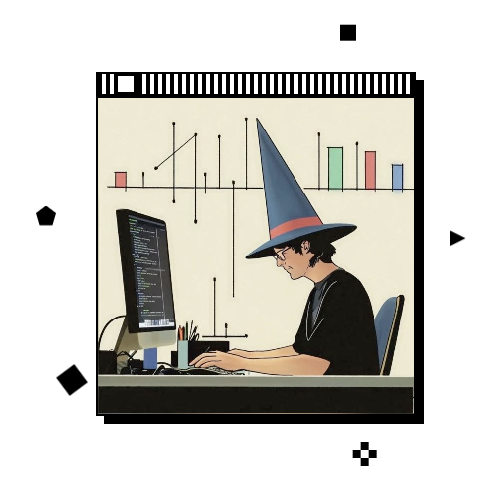The data journalist's suspicious mind: why doubt is our superpower
Why the constant skepticism and self-doubt that defines data journalism is actually our greatest strength in an age of AI and information abundance.
Experience has taught me that whenever I’m analyzing a dataset and spot an especially interesting outlier, my brain automatically switches into detective mode—analyzing what feels like a crime scene where I’m 99% sure I’m the killer.
There’s an old journalism adage: “If your mother says she loves you, get a second source.” When you combine that constant skepticism with the reality that data is messy and errors are inevitable, you develop a persistent “this can’t be right” mindset. It’s actually quite enjoyable — you never get to celebrate those “eureka!” moments when something interesting shows up. Instead, you immediately doubt yourself. And once you’ve triple-checked your code and everything looks correct, you transform into a hypothesis machine: Why is this happening? What could explain this pattern? Who can help me make sense of this anomaly?
This meticulous doubt happens naturally, but it’s always fascinating to witness it in other journalists’ minds. That’s exactly what occurred when I read Ainslie Johnstone’s piece about data exploration in this week’s “Off the Charts” newsletter from The Economist’s data team:
At first I thought it had to be an error. Had I made a mistake in the code? I plotted out a map of the change in temperature since the 1980s and there was South Asia, pale blue in a world of red. I re-downloaded the data and tried it again, but it still looked the same. Puzzled, I finally googled “India cooling climate change”.
By the way, “Off the Charts” is probably the best “peek inside a data team” newsletter out there. I really recommend it.
Johnstone’s piece brilliantly captures the data journalist’s state of mind when diving into a dataset: the “so many paths to explore” feeling, the draft visualizations never intended for public consumption (just to double-check), the random Google searches (or LLM queries nowadays) testing hypotheses that just formed in your head, and that satisfying “ohhh” moment when a source finally explains the pattern you’ve been puzzling over.
Recently, I heard a prominent Portuguese media executive claim that “data analysis is dead because ChatGPT can do it for you now.” While LLM models are incredibly powerful and definitely transforming our field, I sincerely hope we don’t lose the slightly sadistic pleasure of watching a hypothesis crumble due to a typo in our code, a data collection error, or a source explaining why we can’t jump to the conclusion we’re trying to reach.
The data journalist’s suspicious mindset can be exhausting—sometimes even paranoid. But it’s an excellent place to operate from if you care about truth and democracy. In an era of information abundance and artificial intelligence, our professional skepticism isn’t becoming obsolete—it’s becoming more valuable than ever.
